
Bipolar disorder-overview
Sometimes referred to as manic depression, it is a serious mental condition causing serious shifts in mood and behavior–from the highs of mania on one extreme, to the lows of depression on the other. More than just a transitory good or bad mood, the cycles of bipolar disorder last for days, weeks, or months. And unlike everyday mood swings, the mood changes of bipolar disorder are so powerful that they interfere with one’s capability to function normally.
Triggers of the manic and depressive states
Substance abuse; cocaine, ecstasy, and amphetamines can trigger mania, while alcohol and tranquilizers can trigger depression.Stress. Not only is stress not good for one’s overall health, it may cause bipolar disorders in persons that might have a genetic predisposition. The most stressful events, as research has shown, that may trigger this condition are losing a loved one, moving house, divorce or getting fired.Seasonal changes. Some people think that seasons might have something to do with the occurrence of various episodes. For instance, manic episodes are more frequent during the summer, and depressive episodes during the fall, winter or spring.Types of bipolar disorder
Cyclothymia, known as a mild form of this disorder. The highs and lows are not that severe and do not affect one’s life as other types might. Bipolar I disorder, characterized by hazardous manic episodes.Bipolar II disorder, less serious than the latter. It might interfere with one’s capability of functioning normally, while periods of depression last longer than the periods of mania.Symptoms of the manic phase
In the manic phase, feelings of increased energy, and euphoria are usual. People experiencing a manic episode often talk very fast, sleep very little, and are hyperactive. They may also feel like they’re invincible, or destined for greatness. Other symptoms include racing thoughts, increased sex drive, extreme optimism, and inability to concentrate.
However, this has an affinity to get out of control. People frequently behave carelessly during a manic episode: gambling away savings, making foolish business investments, etc. They may also become irritable, and aggressive. Some people even become delusional or start hearing voices.
Symptoms of the depression phase
The most common symptoms include: lack of sleep, sadness, chronic pain, irritability, guilt, inability to experience pleasure, exhaustion, feelings of worthlessness, lack of appetite, thoughts of suicide, etc. It was thought to be an ordinary depression, but recent research has shown that there are differences between the two.
People with bipolar depression tend to speak slowly, sleep a lot, and are more likely to develop psychotic depression, a state in which lose contact with reality.
Today, there is a cure for bipolar disorder. The only problem is that a person suffering from it often does not receive the help he needs. So, when one is experiencing symptoms, they should immediately consult a doctor to get the help needed.





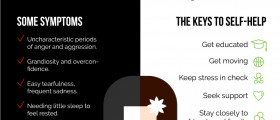
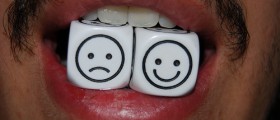
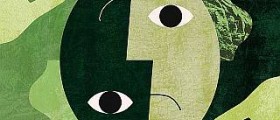

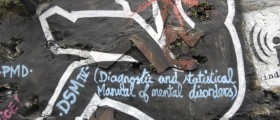

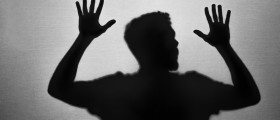





Your thoughts on this
Loading...